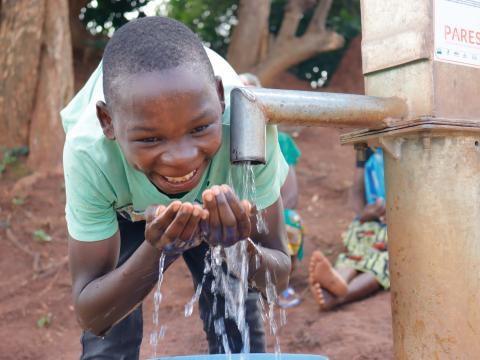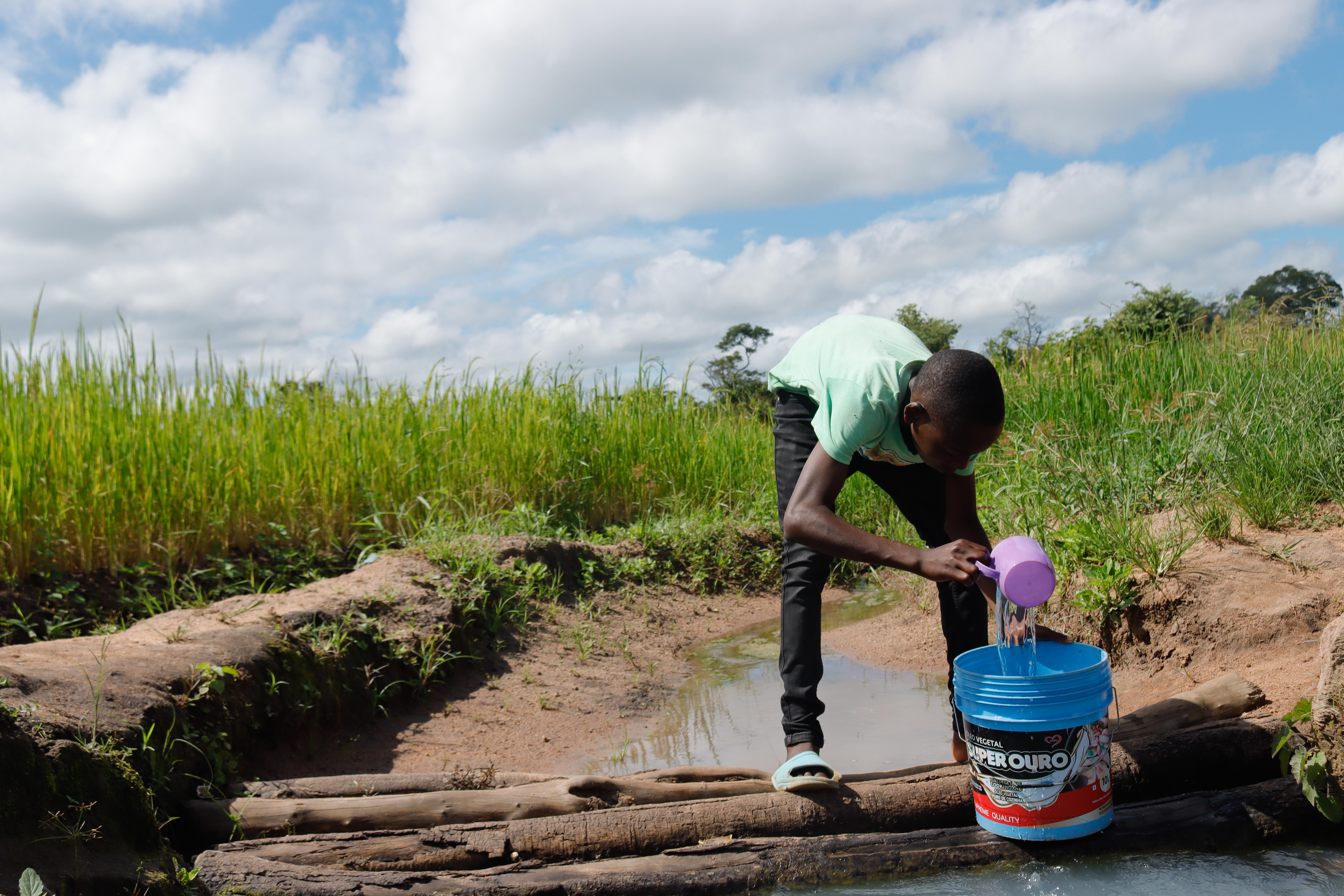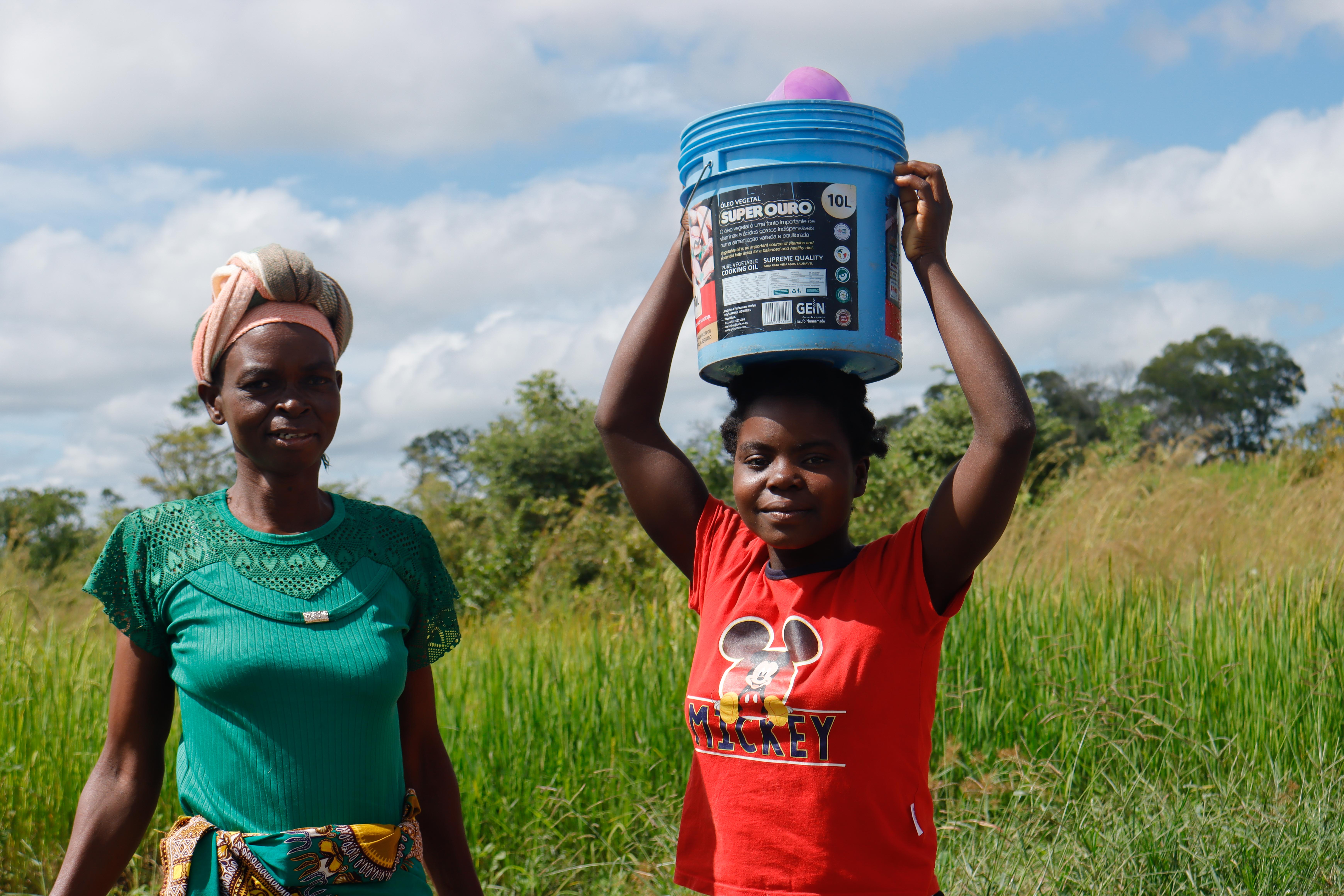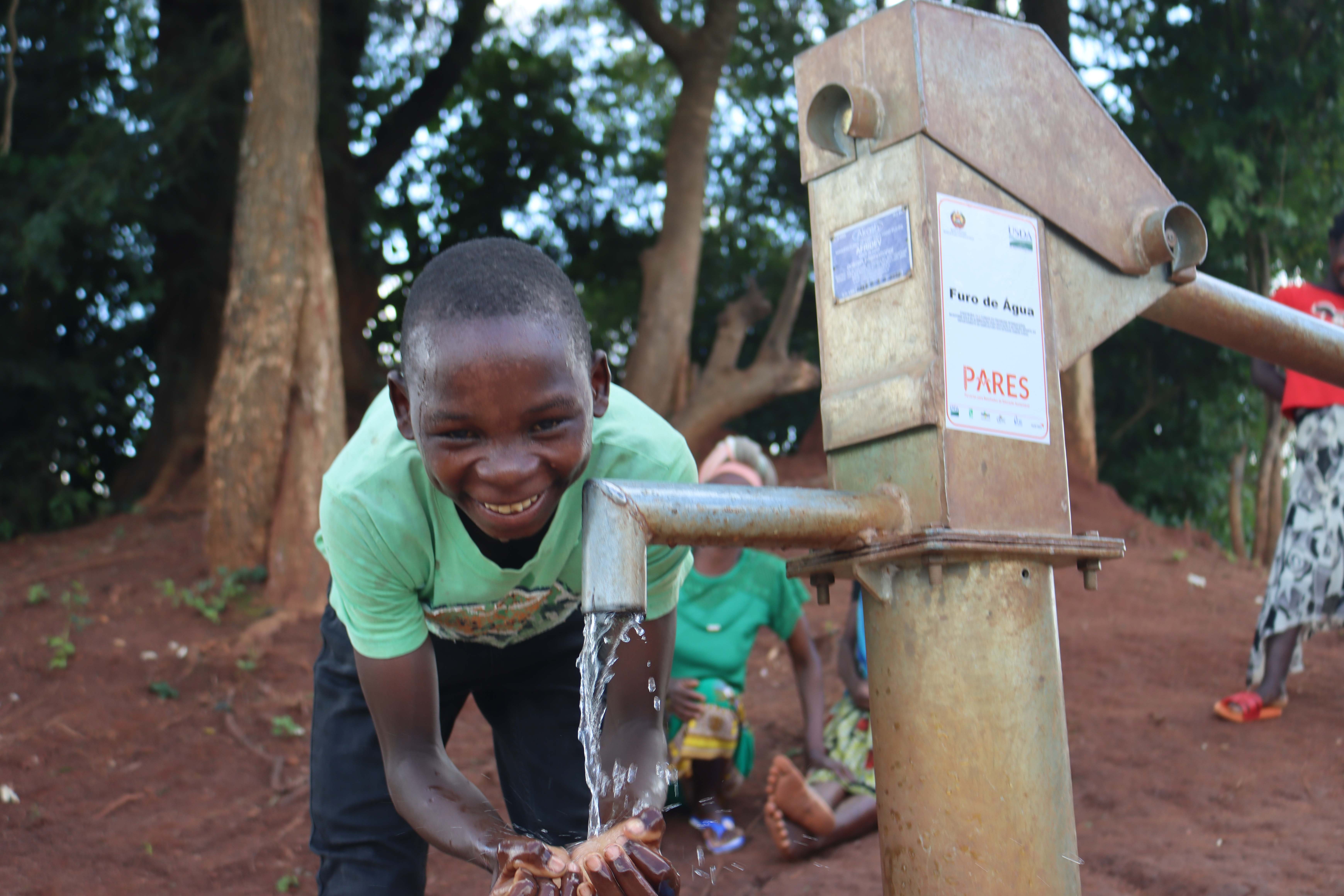Clean Water is Changing the Lives of School Children and Families in Zambézia

By Benjamim Capito, Communications Coordinator
For students at Muiticula Primary School in Zambézia province, access to safe drinking water was once a distant dream. Without running water, maintaining even the most basic hygiene standards was nearly impossible. The daily struggle for water mirrored the hardship of a community that had long relied on the nearby river for survival.
To collect water, villagers dug shallow wells along the riverbank. Nevertheless, both dry and rainy seasons brought new risks. In the dry months, families had to dig deeper, often without safety measures, exposing themselves to contamination. The rainy season, however, posed the greatest threat. Water was frequently polluted due to widespread open defecation and inadequate sanitation infrastructure.

“The rainwater would carry feces along the way because most families didn’t have latrines. The best we could do was boil the water,” explained Pedro, the school’s headmaster.
The responsibility of fetching water fell heavily on women and children who are traditionally tasked with household chores.
“Our women had to wake up at 3 a.m. and walk to the riverside just to secure 20 liters of water before sunrise,” said Mavuto, a resident.

When word spread that the community might receive a borehole, hope began to grow. However, the journey was far from easy.
“The engineers tried multiple sites with no success. Our elders and community leaders prayed for a breakthrough. Finally, the borehole was successfully drilled near a termite mound,” recalled Costa, the village secretary.
Thanks to the Partnering for Sustainable Education Outcomes (PARES) project, implemented by World Vision Mozambique and funded by the McGovern-Dole International Food for Education and Child Nutrition Program of the United States Department of Agriculture (USDA), a new borehole now provides clean water to over 400 schoolchildren and their families.
“Before, we had no water to wash our hands after using the latrines. Now, the borehole is close to my home. I can bathe at least three times a day and wash my clothes regularly,” said Samuel, a 13-year-old fifth-grade student.

For Helena, 16, the new water source has transformed her school routine.
“Now I get to school on time because I no longer have to walk long hours to fetch water. It’s made learning easier,” she smiled.
The Muiticula borehole is one of 25 installed across schools in Zambézia and Nampula provinces through the PARES project. In the Milange district alone, 15 boreholes have been drilled, each supported by a trained Water Committee in collaboration with the District Planning and Infrastructure Service (SDPI).
The project prioritized schools and communities previously overlooked by both government and humanitarian organizations—places with no inclusive WASH (Water, Sanitation and Hygiene) plans in sight. These investments not only bring water but also restore dignity, improve health, and offer students a better chance to learn and thrive.